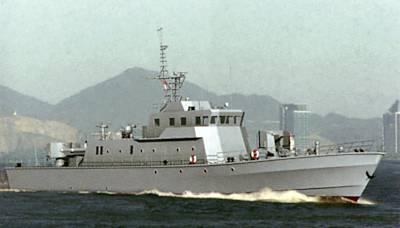WASHINGTON, Sept. 1, 2011 — As the Dec. 31 departure date approaches for approximately 46,000 U.S. troops remaining in Iraq, Iraqi security forces in the north are prepared to manage internal security and external defense, a U.S. brigade commander posted in Iraq said today.
“It’s not the end of something, it’s the transition of something,” Army Col. Brian Winski, commander of 4th Advise and Assist Brigade, 1st Cavalry Division, told Pentagon reporters today during a video briefing from U.S. Division North headquarters at Contingency Operating Base Speicher, near Tikrit.
Since the “Long Knife Brigade” deployed in September 2010, Winski has led the mission to advise, train and assist Iraqi security forces throughout Nineveh province and Mosul.
His forces’ main efforts over the year, the commander said, have been to transition former U.S. bases to Iraqi control, and help the Iraqi army rebuild combat skills that have languished over several years of employing police functions during counterinsurgency operations.
The training emphasized “the ability to conduct an attack and defense [and] employ combined arms, employ artillery, mortars and similar proficiencies that were not typically exercised over the last several years as the Iraqi army forces have been focused on internal security,” he said.
Winski’s brigade partnered with some 60,000 Iraqi security forces, including about 20,000 police, 35,000 soldiers and members of the federal police or a border enforcement brigade, the colonel said.
His troops also monitored Iraqi-Kurdish operations in 15 areas of mutual concern between the Kurdish regional government and the Iraqi central government, Winski said.
“[There is now] a long-term sustainable security solution implemented in all those areas, where the Iraqis and the Kurds are securing it bilaterally now … quite effectively,” he said.
His brigade’s soldiers are in the process of returning to Fort Hood, Texas, Winski said, and will be replaced with a smaller force that will remain focused on completing transition efforts.
Much of that work is complete or nearly so, Winski said.
“At about the midway point of our rotation, we were in 22 bases across the province,” he said, noting that most were in the combined Iraqi-Kurd areas.
“We transitioned all of those to the bilateral security arrangement,” he added.
The training mission for Iraqi forces has also largely shifted to an Iraqi lead, Winski said.
“We are now training and certifying and preparing Iraqi trainers to continue the training that we were doing over the course of this past year,” he said. “So where we had a substantial number of forces committed to training Iraqi army forces on those traditional army tasks I described, we’re now assisting their trainers as they conduct that.”
Iraqi forces already are planning and conducting internal security operations with only minimal U.S. support, the colonel said.
He offered as an example an event this morning in Mosul, during which some 35 Iraqi prisoners charged with terrorism-related crimes tried to tunnel out of a detention facility.
“Almost immediately, the Iraqi security forces recaptured the majority of [the prisoners],” Winski said. “They know exactly who it is that’s still at large … and [are] preparing to conduct operations to detain them when they surface, wherever that may be.”
U.S. assistance in the capture involved air surveillance via aerial reconnaissance assets and helicopters, he said. Meanwhile, the Iraqi security forces positioned their troops to contain the escapees’ movements and conducted “good, aggressive patrolling actions to pursue where these individuals have likely fled to or are hiding.”
Iraqi security forces are likewise leading the fight against insurgent activity, in many cases eliminating threat cells before they become active, the colonel said.
“Speaking to Nineveh alone, those Iraqi security force actions — where they’re finding and clearing caches, they’re finding these [vehicle-borne bombs] before they’re employed, they’re identifying the enemy cells before they conduct the attacks — the vast majority of those are unilateral Iraqi security force operations,” he said. “We assist with some intelligence. We assist with some advisory efforts. But that is enhancing. It’s not a make-or-break type of assistance effort.”
Insurgent, criminal and extortion activities in the province are all connected, Winski said, and “are being dealt with … very effectively by the Iraqi security forces — the federal police, the Iraqi army forces and their counterterrorism forces.”
While any extension of U.S. troop presence in Iraq is a policy matter for the Iraqi and U.S. governments to decide, Winski said, transition in his area of operations is proceeding smoothly and according to plan.
“I’m very confident that the Iraqi security forces will continue to prosecute very effective internal security operations,” he said. “I’m likewise confident that they have a foundation for an external defense and they, more importantly, have training systems that will endure past our departure [and they] will continue to build that foundation and capability for external defense.”
Source:
U.S. Department of Defense
Office of the Assistant Secretary of Defense (Public Affairs)

 von
von 